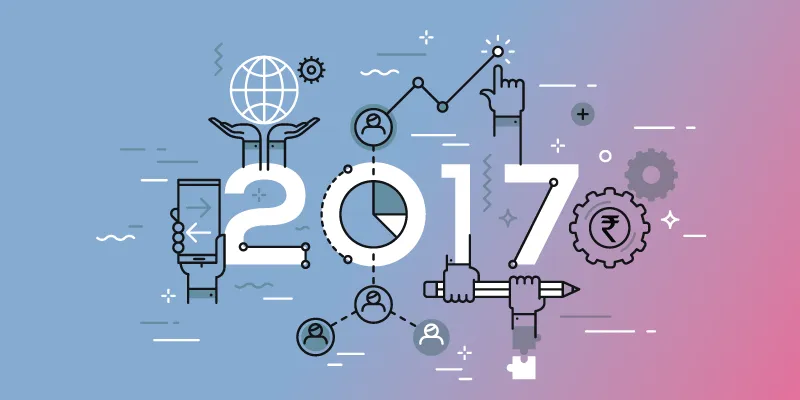5 emerging trends for hiring in 2016 which will dominate 2017
Rapid growth engines are bound to undergo large-scale transformations. While the consumerism in the country has been a catalyst for fast-paced growth, corporate India has also played its part in it. India has soon grown into becoming the third largest startup economy in the world. To add to this, the strong services sector has continued to contribute as it has been doing in the last decade-and-a-half.
One of the features of India’s services economy is that we have been reliant on large volumes of human resource. During the last decade, organisations had a well-charted recruitment plan that was divided between entry level and lateral talent. The supply side of talent – academic institutions – prepared talent to cater to this demand. The industry skews shifted considerably over the years, which has had its impact on the way organisations recruited talent. Technological advancements have also played a crucial role across recruitment lifecycle.

As a partner to a large number and variety of hiring organisations, we have witnessed a few patterns in the year 2016 that are emerging as trends in the talent acquisition lifecycle, which are also likely to dominate the industry in the upcoming years. Some of these trends are listed below:
Just-in-time hiring:
Organisations have been focussed on reducing the ‘inventory cost’ of talent. To optimise costs, the HR departments are being asked to hire for a specific job/assignment as and when it is required. This demands agile recruitment processes, creative sourcing models and tailored assessments delivered innovatively. The existing campus hiring approaches will significantly be impacted by this in the coming years. The startup ecosystem is taking a lead in this by establishing best practices for others to adapt.
Recruitment for potential:
The traditional recruitment processes led by assessment of knowledge and skills that are required to perform a job are expected to change. The rapid changes in the business world demand the need for organisations to house talent that can be moulded for different requirements. Today’s business demands are becoming obsolete soon and so are the skills to perform that job. Organisations expect its employees to be able to learn and adapt to new technologies, domains and roles quickly to be able to perform in the long run. Hence there is a clear emphasis on identifying personality and behaviour traits of candidates to assess their potential to learn and perform.
Insistence on ready talent:
In India, academic curriculum has always chased the needs of the industry. To address the resulting gaps in entry-level hiring, organisations have built large training facilities where skills and abilities of new recruits are ‘bridged’. Over the years, corporates have rightly shown intent to pass this high training cost and effort to the academia. The availability of large volume of candidates has given corporates the leverage to demand industry-ready candidates who can be allocated on the job on day one or with minimal training. This has led to stringent holistic assessments of talent. Hire-Train-Deploy models that have taken the burden off the corporates have also emerged. Academic institutions, on their part, are also imparting proactive employability enhancement initiatives (assessments, training) to address this gap in requirement.
Mobility:
The end-to-end recruitment process of a candidate is a tedious one. This further becomes a nightmare in mass recruitment scenarios. To find the right talent, HR departments have to manage interview schedules and gather documents, test scores and interviewer feedback for hundreds of applicants. Collating all this data for each applicant to make a well-informed hiring decision is often a manual and time-consuming process leading to high drop-outs and disengaged candidates. With increasing adoption of mobile and digital solutions, there is a possibility for HRs to embrace innovative mobile technologies and streamline the recruitment process. In this context, organisations have been leveraging the power of mobility to integrate their entire recruitment process from sourcing to assessing, interviewing and onboarding on a single platform. Such integrations and delivery on mobile platforms are making the process paperless, convenient, error-free and efficient.
Social media, simulations and artificial intelligence:
Social media has been an integral part of our daily schedules. Mobile devices have made individuals more social than ever before. The role of social media in the hiring process has been discussed for a long time. For starters, the availability of prospective employees on different platforms, their level of engagement and the possibility to identify, attract and engage existing and potential employees cannot be debated. This has made social media a definite sourcing channel for large number of organisations. All of us leave our daily footprint on these channels and the amount of data that is available about individual candidates cannot be imagined. There are large number of experiments that are happening on how artificial intelligence (AI) and machine learning tools can identify patterns and make inferences about abilities, interest levels and fitment potential of candidates. A recent study we conducted with SHRM revealed that about 80 percent of organisations have already adopted or is looking to adopt social media profiling tools and online simulations in the near future.
The emerging technology landscape, mobility, APP-ification of life, big data analytics, AI and machine learning are expected to cause a colossal shift in the way recruitment will be handled in the future. 2016 and 2017 will lay the foundation for some of these shifts. Even with all these changes, technology will not replace the HR departments. Yet, it will replace those who do not see these transformations happening in their environment. It is time to embrace the changing times.
(Disclaimer: The views and opinions expressed in this article are those of the author and do not necessarily reflect the views of YourStory.)







